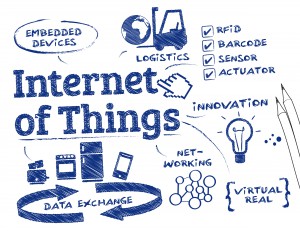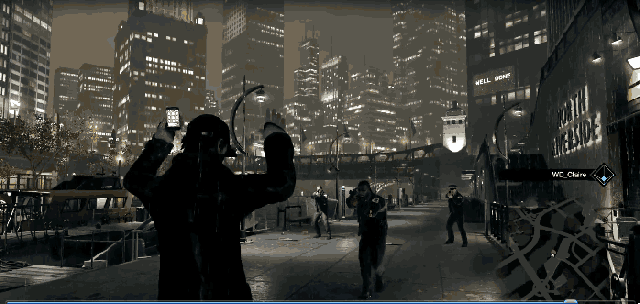 Several reports by big companies such as Huawei and Cisco have been released where new solutions for interconnected and smart cities are suggested. In general, this is a bright idea because many of the problems in the cities will be improved in a way, but some feel negative about the subject. Many are convinced that more surveillance will increase the responsiveness of some government departments, like the police, the fire departments, and ambulance responses, but this also means more monitoring. And a lot of folks feel that this may reduce some crimes in cities, but then again there is always the ones who feel skeptic.
Several reports by big companies such as Huawei and Cisco have been released where new solutions for interconnected and smart cities are suggested. In general, this is a bright idea because many of the problems in the cities will be improved in a way, but some feel negative about the subject. Many are convinced that more surveillance will increase the responsiveness of some government departments, like the police, the fire departments, and ambulance responses, but this also means more monitoring. And a lot of folks feel that this may reduce some crimes in cities, but then again there is always the ones who feel skeptic.

What Can We Expect to See
Huawei, being one of the tech giants who spend resources into developing such “Smart City” type of projects have suggested that we take advantage of the Internet of Things or IoT. This means that we could see simple devices such as street lights that support connection via light or eLTE technologies that are implemented and upload surveillance live in the cloud. This will allow police numerous benefits.
Cisco, being the tech giant it is, also offer quite the solutions when it comes to such devices. Here is what their smart city systems claim to offer:
→ “It helps law enforcement monitor public areas, analyze patterns, and track incidents and suspects, enabling quicker response. By combining information from video surveillance cameras, social media, citizen reports, and other sensors, the solution provides a richer view of urban safety.” Source: Cisco
In addition to this, these technologies should promise a lot of benefits to the citizens too:
- More caught criminals.
- Automatic detection of any accidents or crimes that require attention which will allow for faster reactions – the police will know about what happened before anyone calls them.
- More information on the field – the police will know in details from the scene of an incident what has happened and to what extent is the risk of a situation before they even get there. This will allow them to prepare better.
- Decreased costs.
Cisco also claims that this will result in some long-term benefits for cities themselves, mainly regarding business:
- Less crime and less risk living in the city.
- Increased likelihood of third-parties conducting business in the city.
- More publicly available information about the city which will allow for faster planning when visiting the city.

But Is There a Downside?
Given the Snowden situation which openly revealed how much information is being collected and tracked on non-suspecting citizens and that government surveillance is already a fact, the only downside will be more monitoring than before.
One type of monitoring is the location monitoring. Such type of systems will enable different cameras to be viewed and accessed immediately by the party in control(an officer, for example) for information purposes. There is no downside of that and crime rates will most likely decrease after it is introduced.
Not only this, but the monitoring will also extend to social media activity and be separated clearly via a crime type. In addition to this, similar to Google Analytics, the people who monitor the smart city will also be able to make complicated analyses as well as forecasts for accidents, crimes, and other threats. This will allow for a very fast development and improvement of this system. This will also give the police an overview of the city and areas with higher crime-rate so that they allocate their resources properly for faster responses.
So, it seems that this is a good system, but many experienced security professionals feel concerned about it’s future development for several key reasons.
Reason #1 This technology like any other can be hacked, even though the tech giants behind it deem it unhackable. Bear in mind that we have the human factor here and some might say that as long as there are people who create machines, there will always be flaws in them. And given that most people are adaptable, the new type of criminals may come up with counter-measures against that.
Reason #2 Many believe that this type of control should be limited to some extent, because while it might let police see a theft in progress from a store’s camera, it also lets the government tap into every aspect of cities, putting them in complete control of all the sensors, cameras and other technologies to be added in the future cities. This makes all of those technologies able to be manipulated, and many feel convinced that this is in breach of fundamental principles of trust. With great power comes great responsibility for sure, because as Mikko Hypponen from Heimdal states, governments hack each other all the time.
Reason #3 Will it stop all crime? While surveillance is good, if there is a terrorist attack, such as an explosion, this technology cannot prevent it, only let the government monitor it, which makes this technology useless against such type of crimes.

It Is Already Happening
While we go about our daily lives, companies like Huawei have already implemented technologies in several cities like Nairobi in Kenya which has 1,800 cameras linked with 195 facilities and 7,600 officers. Many large cities, like Glasgow, Rio De Janeiro and other have already implemented control centers with interconnected cameras that monitor many aspects of the cities, but most of them conceal what new technologies may have already been implemented. Whatever the case may be, internet of things has its plusses and minuses and when such technologies are implemented there are many things to consider, instead of just doing this.



